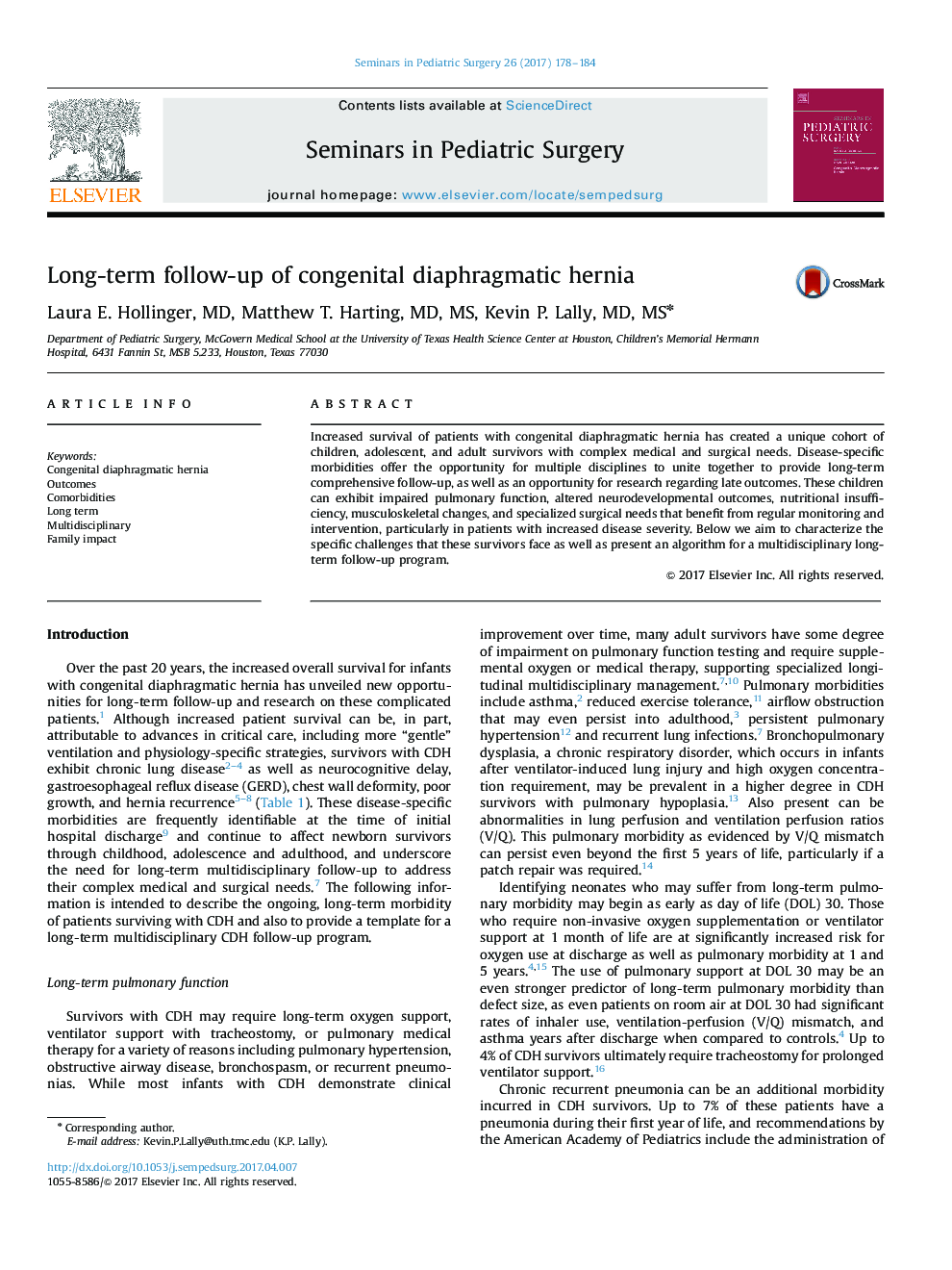| Article ID | Journal | Published Year | Pages | File Type |
|---|---|---|---|---|
| 5720351 | Seminars in Pediatric Surgery | 2017 | 7 Pages |
Increased survival of patients with congenital diaphragmatic hernia has created a unique cohort of children, adolescent, and adult survivors with complex medical and surgical needs. Disease-specific morbidities offer the opportunity for multiple disciplines to unite together to provide long-term comprehensive follow-up, as well as an opportunity for research regarding late outcomes. These children can exhibit impaired pulmonary function, altered neurodevelopmental outcomes, nutritional insufficiency, musculoskeletal changes, and specialized surgical needs that benefit from regular monitoring and intervention, particularly in patients with increased disease severity. Below we aim to characterize the specific challenges that these survivors face as well as present an algorithm for a multidisciplinary long-term follow-up program.
